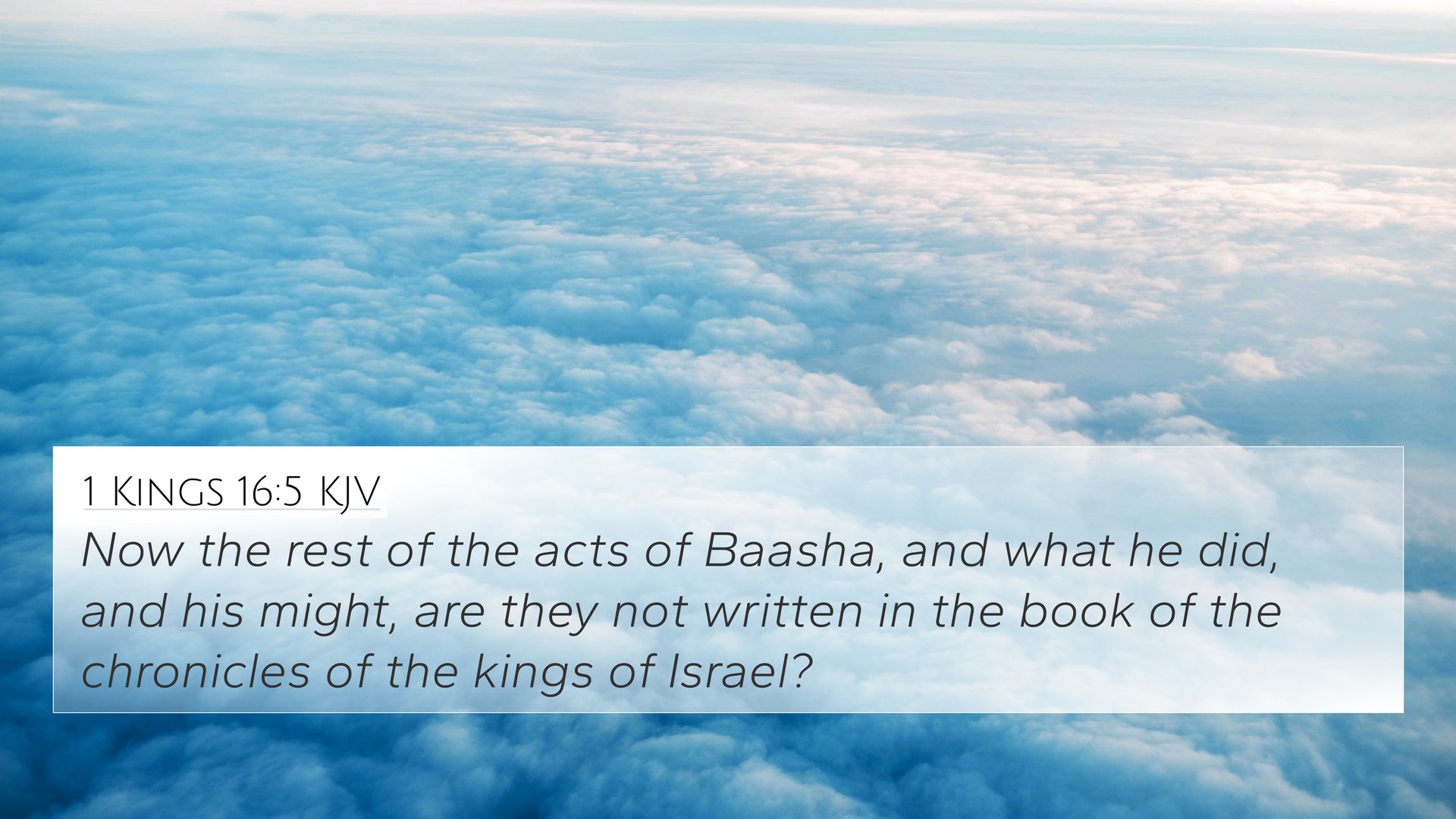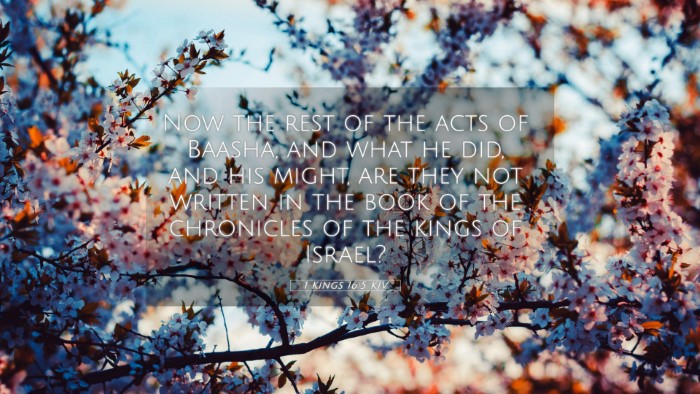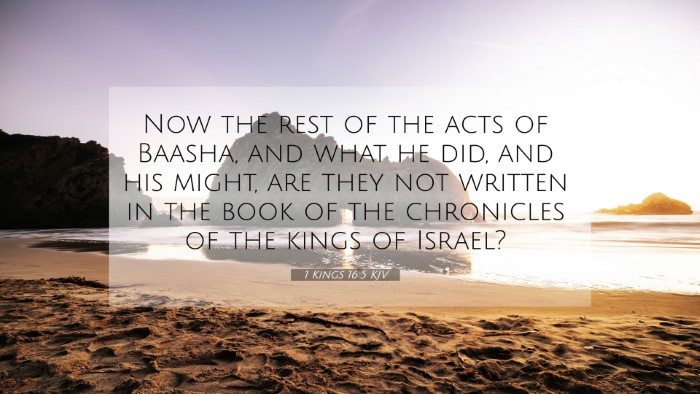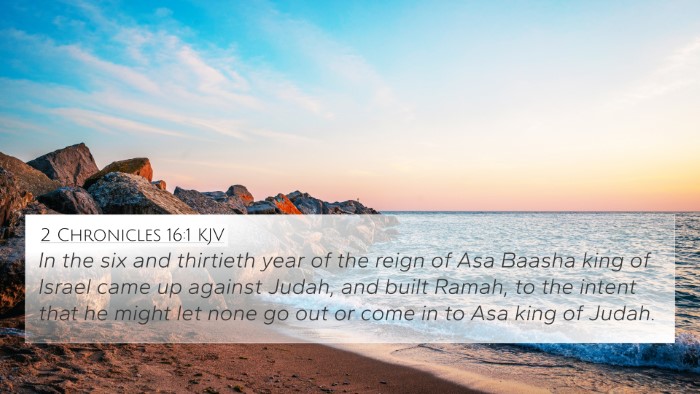Understanding 1 Kings 16:5
1 Kings 16:5 states, "Now the rest of the acts of Baasha, and what he did, and his might, are they not written in the book of the chronicles of the kings of Israel?" This verse serves as a concluding remark in the narrative concerning Baasha's reign, emphasizing the documentation of royal acts and legacies as seen throughout the history of Israel.
Meaning and Interpretation
The significance of this verse lies in its implication that the acts and might of rulers, particularly Baasha, are recorded for posterity. This reflects the Biblical theme that God ensures the actions of His people, particularly leaders, are documented and reviewed. Matthew Henry, Albert Barnes, and Adam Clarke highlight several aspects:
- Historical Context: Baasha's reign was characterized by notable military actions and political maneuvers. The chronicling of his acts indicates the importance of understanding Israel's history in relation to God's covenant.
- God's Sovereignty: The records of kings serve to remind readers of God's sovereignty over nations, underscoring the idea that rulers are not independent of divine authority.
- Lessons from History: The mention of the "book of the chronicles" suggests that future generations should learn from the successes and failures of past leaders, reinforcing the theme of wisdom in understanding historical events as part of spiritual growth.
- Interconnectedness of Scripture: The verse initiates an interconnected narrative that ties into the broader historical accounts found in the scriptures, encouraging exploration of cross-references that deepen understanding.
Cross-References
This verse is closely related to several others that further illuminate its meaning:
- 1 Kings 14:29-31: Discusses the historical records of King Jeroboam, emphasizing the legacy of rulers.
- 2 Chronicles 16:11: Mentions the acts of Asa, which are similarly chronicled.
- 2 Kings 14:28: Highlights the enduring memory of kings’ actions, emphasizing their historical significance.
- Ecclesiastes 1:9: Underlines the cyclical nature of history, reiterating that what has happened will happen again.
- Psalm 78:2-4: God instructs His people to tell future generations about His deeds and wonders.
- Isaiah 30:8: A call to write down the vision, emphasizing the importance of recording history.
- Matthew 5:17-18: Jesus refers to the importance of the law and the prophets, connecting the Old Testament with His teachings.
Connections and Themes
1 Kings 16:5 facilitates numerous thematic connections and can be examined in light of various Cross-Referencing Biblical texts:
- Thematic Connection: The documentation of rulers links to God’s larger plan for Israel, seen through major narrative transitions.
- Comparative Analysis: Analyzing the chronicle of kings provides insights into comparisons between various rulers, their faithfulness, and their failures.
- Inter-Biblical Dialogue: Comparative studies can be made between the accounts of kings in the Old Testament and the teachings of the New Testament, identifying how past leadership influences Christian doctrine.
Tools for Bible Cross-Referencing
Studying 1 Kings 16:5 can be enhanced through various tools:
- Bible Concordance: A useful resource for finding related verses and themes.
- Bible Cross-Reference Guide: Aids in linking scripture and finding thematic connections.
- Bible Reference Resources: Comprehensive tools to analyze the context of verses and their significance.
- Cross-Reference Bible Study: Methods to effectively study relationships between verses and narratives.
- Bible Chain References: Create connections across different books of the Bible, enhancing understanding.
Conclusion
In conclusion, 1 Kings 16:5 provides insights into historical and spiritual reflections found within the Bible. The call to remember the acts of rulers underscores God's plan, offering lessons in leadership, faith, and the importance of documentation in understanding our spiritual heritage. This verse is not merely a historical remark but a bridge leading to deeper theological reflections and connections across the entirety of scripture.





